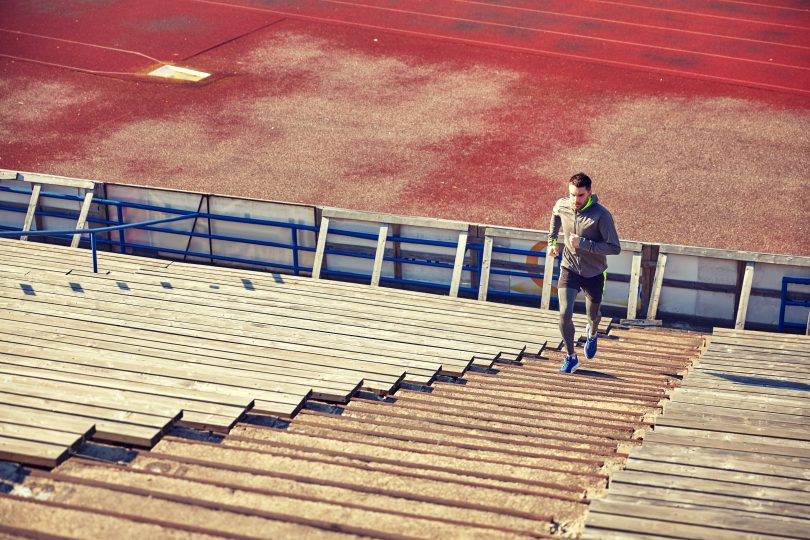Want to listen to the audio version of this article? Just click play below!
Some time has passed since we first posted this piece, but the debate over single-sport specialization versus playing multiple-sports is loud as ever. If you are a high school player trying to decide what to do, we’ve updated this article to give you some important things to think about as you consider your options.
What the Best College Coaches Say About Multi-Sport Athletes
It’s not every day that you find yourself in a room with three of the best coaches in all of college baseball. But, these things happen at the ABCA Convention, and there sat three of the best—LSU’s Paul Mainieri (Since retired), Vanderbilt’s Tim Corbin, and UCLA’s John Savage. The trio was sitting on a stage in a small breakout room, answering questions from the audience. The hot button question was asked, “Can you comment on your feelings about multi-sport athletes versus single sport specialization?”
The coaches’ answers were overwhelmingly favorable to multi-sport athletes. Mainieri spoke first:
“If I had a choice between recruiting two players and one player played baseball year-round and the other played football in the fall, basketball in the winter, baseball in the spring, I’d take the multi-sport athlete every time, all factors considered equal.”
Mainieri opened the floor to the scouting directors for the New York Yankees and Colorado Rockies, who agreed with the LSU skipper.
Coach Corbin added his two cents:
“The mind does get stale. So, if you play baseball for 12 months, you can go into a mode of, yes you are there, yes you are training, but really is your practice with depth, is your mind into it fully?”
Lastly, Savage agreed:
“We wish some guys had played football growing up—or basketball. Basketball’s not as physical as football, but just in the wear-and-tear. Guys that are 35 years-old are taking 3 months off. These 18 year-olds, 17 year-olds [are] playing year round. Especially out here [in Southern California… ] I think we all agree that we love the multi-sport guy just because of those reasons.”
Three of the best college coaches around and two MLB scouting directors all voiced some variation of an answer in favor of multi-sport athletes. These opinions are significant. Coaches are the gatekeepers to college baseball and decide who gets recruited to play at the next level. Similar opinions have been shared with KPB by many coaches over the years.
Adding Context to the Debate
There is no arguing against the lasting benefits of playing multiple sports, especially for younger children. Before high school, kids should sample and play as many sports as their interest and time allow. However, in high school, there needs to be a more nuanced conversation about multi-sport participation than simply, “Do this, it will make you more athletic, help you avoid overuse injuries, and prepare you for college baseball.” This type of sweeping logic helps to highlight some of the flaws and biases with arguments in favor of multiple-sports.
One of the problems with the specialization versus multi-sport argument is that it often lumps together youth of all ages, and treats decisions as if they take place in a vacuum. Arguments that encourage multi-sport participation are often widely supported and believed, even when they are based on biased opinions or research. Driveline Baseball has a great article on their website, Demonizing Early Specialization—Flawed Research Interpretation, which does a nice job of highlighting some of the bias in research (and personal debate) that argues lopsidedly in favor of multi-sport athletes, and we suggest reading that as well.
In the remainder of this article, we want to present a responsible view of the specialization versus multi-sport participation decision as it may actually unfold for a high school baseball player. Doing so requires looking at both options adequately, and that is what we will try to do. Individual factors and circumstances, of course, should be carefully weighed.
Exploring Bias in Favoring Multi-Sport Athletes
First, let’s go back to the conversation in the breakout room at the convention. It’s important to recognize the bias inherent in the opinions of these five great baseball minds. Every one of these coaches/talent evaluators is dealing with and recruiting the very best baseball players in the country. They are talking about supremely talented athletes who are going to be recruited to play baseball, regardless of whether they miss Summer Ball for football practice or Fall Ball for basketball practice. Even Coach Corbin alluded to the fact that the three best players he’s ever coached could have played D1 athletics in another sport. Coach Mainieri’s “all factors created equal” comment qualifies his answer with the assumption that the baseline level of talent is there, and this is often assumed when coaches have this discussion.
We need to understand these opinions in context and we should not make sweeping generalizations about what is best for all high school baseball players based on what we see from the top D1 prospects. The average college bound baseball player may very well need time on the field during the summer and fall to polish his skills and give himself a chance to play at the next level. Weighing whether this player should play multiple sports or focus on giving himself a better chance to play college baseball is a much different decision than a sure-fire D1-bound baseball player who also enjoys playing other sports.
What we are hinting at is the fact that blanket statements about whether high school players should play multiple sports or specialize in baseball simply don’t work. Individual circumstances vary too much, and at the heart of the decision should be the player’s goals and aspirations. What gets lost in the debate is the fact that baseball skills and ability are the common denominator for playing in college, not how many sports you play in high school. If college coaches think you can be good enough at their level, they’ll want you. If they don’t think you can be good enough, they won’t. It’s as simple as that. Sure, coaches may prefer players with a diverse athletic background if given the choice, but that also assumes Mainieri’s “all things considered equal.”
KPB’s Suggestion
When it comes to deciding between playing multiple sports or single sport specialization in high school, our advice is to make a personal decision based on the following:
- Make sure you understand what college baseball coaches are looking for in a recruit and the skills you will need to be able to demonstrate
- Take an objective look at how your skills measure up against these college standards and what it will take to meet or exceed what coaches are looking for
- Think about your goals and aspirations as a ballplayer
- Take the time to learn about how your different options will impact your goals and aspirations
- Make the decision that will give you the best chance to achieve your goals
If you enjoy playing multiple sports, play multiple sports and make sure that your baseball recruiting plan accounts for having less time around the baseball field than single-sport participants and that you will have enough opportunity to meet the standards that college baseball coaches expect. College coaches will certainly find value in your varied athletic background and the skills and benefits you pick up from participating on different kinds of teams and playing for different kinds of coaches. However, if your only passion is baseball, focus on baseball and make sure you take the appropriate amount of time off and follow training protocols so you avoid overuse injuries.
Just because you decide to specialize in one sport, does not mean you will automatically suffer an overuse injury or get burnt out, just as playing multiple sports doesn’t necessarily guarantee you become a superior athlete. Maximize your time in the off-season to train smart and focus on your academics. Immerse yourself in all aspects of baseball so that you show up a complete player and competitor. College coaches will appreciate your ability to understand the nuances of the game on a deeper level. Be smart, and don’t be afraid to take breaks from the game and training when you feel like you are just spinning your wheels.
Whether you decide to play multiple sports or stick to baseball, remember that “the only guarantee is that nothing is guaranteed.” For all players, getting to the next level takes organization, hard work, and persistence. Whatever your decision, you should spend time doing what you love and do it to the best of your ability.







